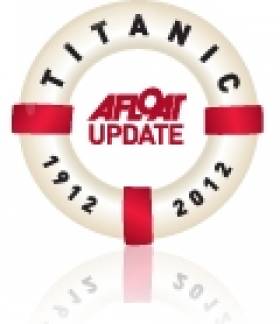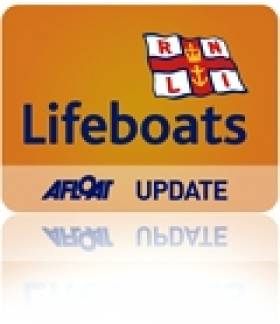Displaying items by tag: tragedy
Irish Defence Forces’ Charity to Commemorate 80th Anniversary of Cork Harbour Tragedy
The organisation ONE, Óglaigh Náisiúnta na hÉireann (or the Organisation of National Ex-Service Personnel) has today announced, it will commemorate the 80th anniversary of the Cork Harbour Tragedy this weekend.
Events will take place on Friday, 9th and Saturday 10th December, at Deepwater Quay, Cobh. The tragic incident, which occurred in 1942, saw two launch boats collide with the propellers of the Irish Poplar, resulting in the deaths of five sailors.
The Cork Harbour Tragedy memorial weekend will commence at 10:00am on the 9th of December. It will see the Naval Service offshore patrol vessel (OPV) L.E. William Butler Yeats depart Deepwater Quay in Cobh, with the families of the deceased victims onboard. They will travel to the Dognose Buoy – the location where the tragedy occurred. Members from the Port of Cork, the Irish Naval Service, the Ballycoton Lifeboat, and local Fishermen, will follow the ship on its journey. It will then return to Cobh where the families will disembark.
On the 10th of December, St Colman’s Cathedral Cobh will host a memorial Mass at 10:00am, celebrating the lives of the sailors. The choir from Bunscoil Rinn an Cabhaligh will sing at the Mass which will include a Hymn written by the Deputy Principal Alan Carney dedicated to the deceased men.
Following the ceremony, the Group will parade to the Monument on East Beach Cobh for wreath-laying. In addition to this, The National Flag will be flown at half-mast where wreaths will be laid.
The Mayor of County Cork will be represented by councillor Cathal Rasmussen and will be joined by local TDs and other dignitaries. Members of the Defence Forces, the Royal Naval Association, ONE members and members of the deceased families will be present.
ONE has helped over 1,000 veterans build their lives post-service to the Irish Defence Forces. The charity currently provides accommodation and meals for over 50 veterans, who would otherwise be homeless.
Speaking ahead of the 80th anniversary of the Cork Harbour Tragedy, CEO of ONE Cormac Kirwan said: “ONE is proud to be hosting part of the remembrance ceremonies in memory of the tragic deaths of John Higgins, Patrick Wilshaw, Frank Powell, William Duggan and Frank Lloyd, who lost their lives on active service in Ireland during the Second World War or The Emergency as it was known. Ar dheis Dé go raibh a hanam usual.”
The 13 Deadliest Shipwrecks in History
#TITANIC - Irreverent tech website Gizmodo has marked the 100th annversary of the sinking of the Titanic with a list of the 13 deadliest shipwrecks in history.
The list runs the gamut from well over a century ago, in the early days of passenger shipping - see the SS Sultana, a tragedy overshadowed by the assassination of Abraham Lincoln and the end of the American Civl War - to more recent events.
Included are such as sad tales as that of the Empress of Ireland, the worst disaster in Canadian maritime history in which more than 1,000 died, and much closer to home the Lusitania, which went down off Kinsale in May 1915 after a torpedo attack.
But the worst was arguably suffered by the passengers of the steamship SS Kiangya - which blew up 50 miles north of Shanghai in December 1948, taking as many as 3,920 lives - and the horror that befell the MV Doña Paz in the Philippines in December 1987, where estimates put the death toll at an unbelievable 4,000.
Gizmodo has more on the story HERE.
Dun Laoghaire Lifeboat Remembers Christmas Eve Tragedy of 1895
The RNLI lifeboat station in Dun Laoghaire is holding it's traditional ceremony at midday at a memorial stone close to the station.
The 15 volunteers lost their lives when their lifeboat capsized while attempting to rescue those on board the SS Palme that ran aground off Blackrock in Co. Dublin.
Those who also lost their lives this year while serving with the RNLI will also be remembered.
Related Safety posts
RNLI Lifeboats in Ireland
Safety News
Rescue News from RNLI Lifeboats in Ireland
Coast Guard News from Ireland
Water Safety News from Ireland
Marine Casualty Investigation Board News
Marine Warnings





























































